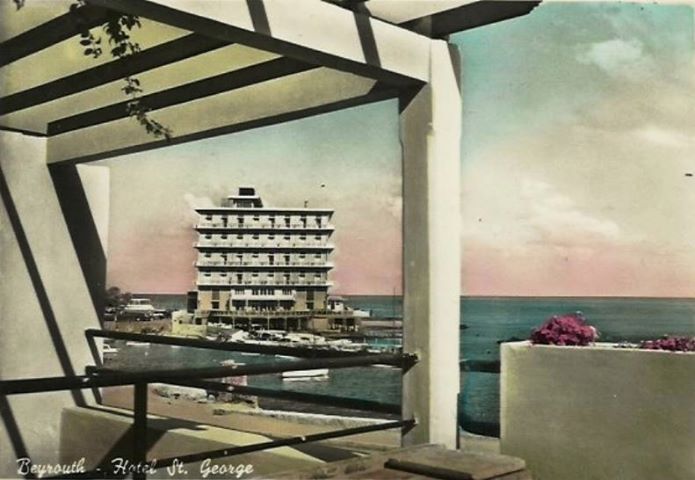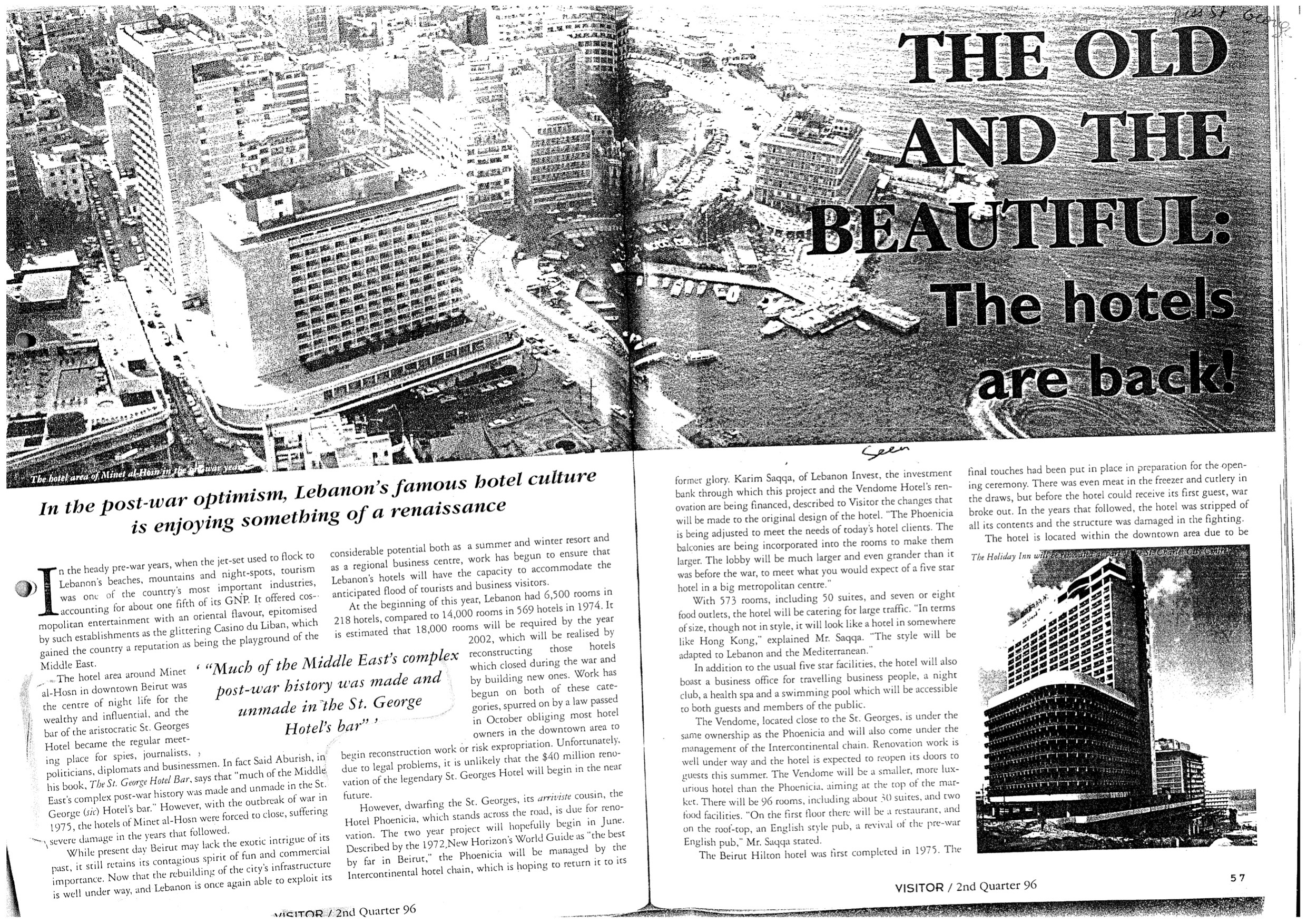The Saint-George Hotel has featured in many newspaper stories, magazine articles, books and films.
Its pre-war atmosphere was best summed up byBritish writer Laurie Lee in London’s Sunday Times Colour Magazine:
“Beirut’s centre of business and rumour, of brief encounters and social display. Oilmen, government officials, the rich and the lonely, conmen and journalists of all nationsgather here to taste Beirut’s simmering sense of affairs”.
Today, however, the media tells a different story.
“Since the end of the civil war,” says Beirut’s Daily Star, “the story of the Saint-George Hotel has proved a divisive one, with many in Lebanon decrying the bully-boy tactics and dubious business practices of Solidere as it went about the regeneration of downtown Beirut”.
While in an article entitled ‘The untold costs of Rafiq Hariri’s New Beirut’ in The Journal of Architecture, Richard Becherer writes:
“Neither public nor private, Solidere epitomises a hybrid economic world whose viability is fundamentally dependent on huge infusions of state capital, public revenues that might otherwise serve other unsung sectors of the economy. Tacit state guarantees also encourage profligate fiscal irresponsibility, fraud, croneyism, monopolism, and excess expenditure that further draw down the state’s meagre resources, explode its national budget deficit, and atrophy the civil state.


